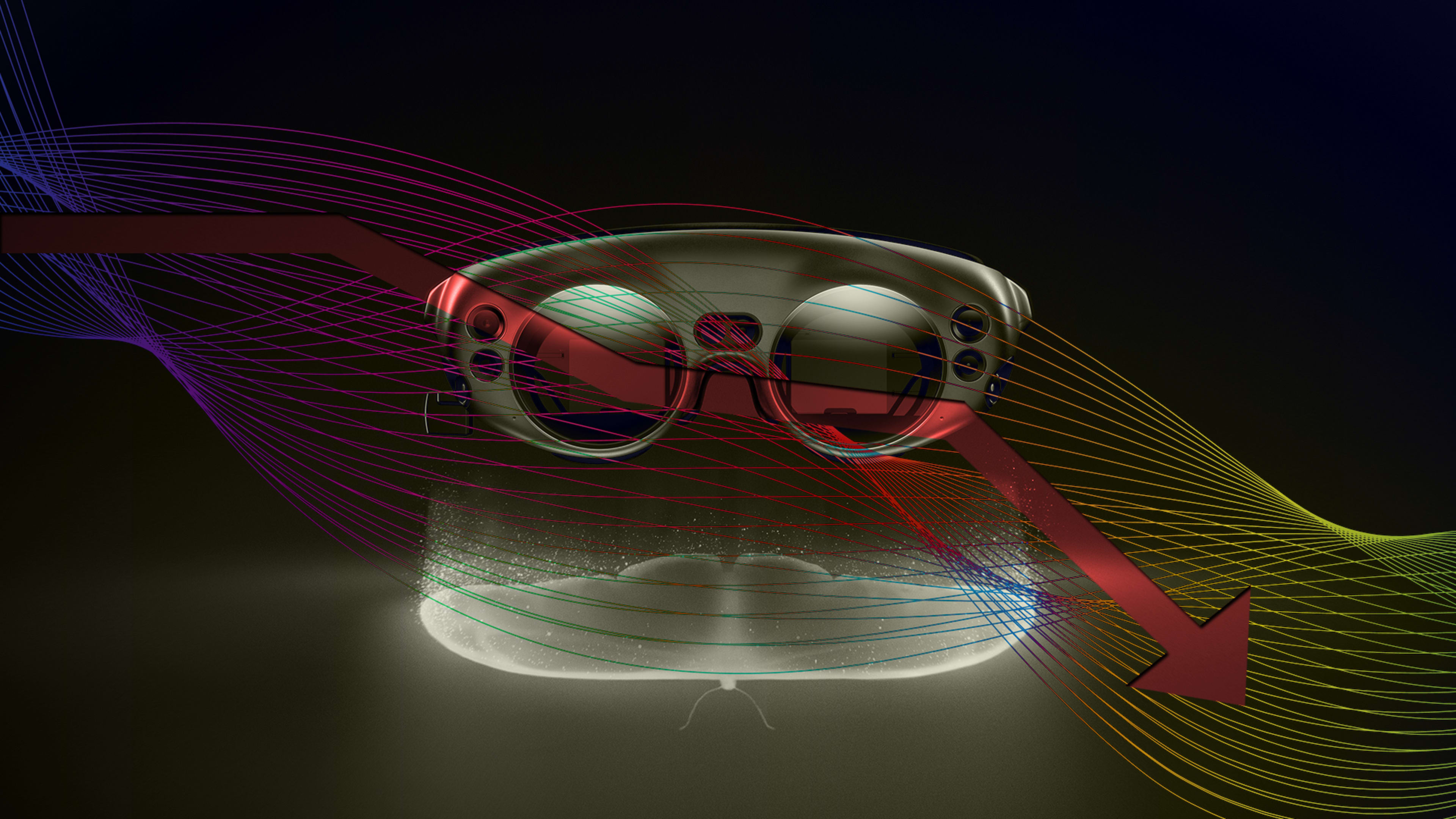It now appears that the augmented reality company Magic Leap is at risk of imploding. The Florida-based company reportedly laid off half of its employees on April 22. A new report from The Information’s Alex Heath on Tuesday says the company is now looking for new funding, or a buyer, and if it can’t find either it will lay off the rest of its staff by June 21.
You can find a range of theories about what happened to this company, perhaps the most-hyped tech startup of the past decade. It’s raised more than $2.6 billion from some big-time investors, including Google, Qualcomm, Andreessen Horowitz, and Kleiner Perkins. In 2016 it was valued at $4.5 billion.
Some say Magic Leap just showed up too soon.
“Basically, they were too ahead of their time,” says Creative Strategies analyst Ben Bajarin in a message to Fast Company. “They could not keep raising money and so revenue was critical, but the market is still too many years away.”
Others say that Magic Leap turned out to be a sort of bait-and-switch, where the technology showed to early investors wasn’t, and never would be, shippable.
The first version of the technology—the one that got the company’s big-name investors excited—was truly amazing, say those who saw the early demos. But back then hardware was far from mobile—it was huge. In fact, the first prototype, which was called “The Beast,” weighed several hundred pounds and looked like something you’d find in an optometrist’s office.
The company then set out to shrink the hardware down to the kind of portability that’s needed for real-world AR, without losing the magic of the experience. It may have been overly optimistic about that challenge.
“I do believe the company and its CEO underestimated how hard it would be—and how long it would take—for them to turn an oversized prototype device into something they could produce and then ship to buyers,” says IDC analyst Tom Mainelli.
Finally, Magic Leap, which was founded in 2010, released its first product in 2018, a smallish, steampunk-looking headset powered by a circular “puck” device that clipped to the wearer’s belt.
IDC analyst Tom MainelliThe company’s vision, from the start, was to go big.”
“The company’s vision, from the start, was to go big, building not just an interesting bit of technology that others could leverage, but to create the entire ecosystem from the ground up,” Mainelli says in an email. “Plenty of people bought into that vision and continued to believe it, even after the first shipping product proved to be underwhelming.”
Magic Leap’s product showed up at a time when consumers weren’t yet ready to walk around with AR headsets on their heads in a half-real, half-digital world called the “Magicverse.” Nor was the content for such a world, which would have to be contributed by lots of third parties, anywhere close to available.
Magic Leap’s investors may have believed the company could survive long enough for the market to develop. But even today, despite the fact that companies like Apple and Facebook are developing AR glasses, the market for consumer AR may still be 5 to 10 years away, says Creative Strategies’ Bajarin.
What most AR startups do to sustain themselves is offer a product to the enterprise market, where they’re used for training or to assist factory or distribution center workers. Magic Leap decided to enter the enterprise market only late last year, nine years after its founding. It’s questionable how energetically it addressed that market. And Microsoft, which has always been comfortable courting large companies, targeted them with HoloLens early on. Magic Leap also faces competition from Google, Lenovo, and others.
“I know for a fact that commercial AR software vendors, and their customers, would love to see another viable enterprise AR hardware vendor,” IDC’s Mainelli says. “Unfortunately, the company’s motions in that direction haven’t yielded many tangible results.”
Now Magic Leap says it’s backing away from the consumer business entirely, and will put all its chips on business applications.
While Magic Leap’s troubles are happening in the midst of the COVID-19 outbreak, the pandemic may not be to blame. All of the problems described above are years old, and unresolved. Actually, the current work-from-home situation creates an immediate need for AR products that could help make remote meetings better substitutes for face-to-face ones.
If anything, Magic Leap may face the same conundrum that hundreds of other startups are facing right now: an inability to raise more money from VCs, many of which have frozen new investments during the current economy.
The latest report, from Business Insider’s Hugh Langley on Tuesday, says Magic Leap is hoping to be saved by a $100 million investment from an unnamed healthcare company that hopes to use the technology to assist doctors during surgeries. Separately, The Information’s Heath reported medical-device manufacturer Zimmer Biomet as a possible investor.
So the decade-long saga continues—at least until June 21.
Recognize your brand’s excellence by applying to this year’s Brands That Matter Awards before the early-rate deadline, May 3.
